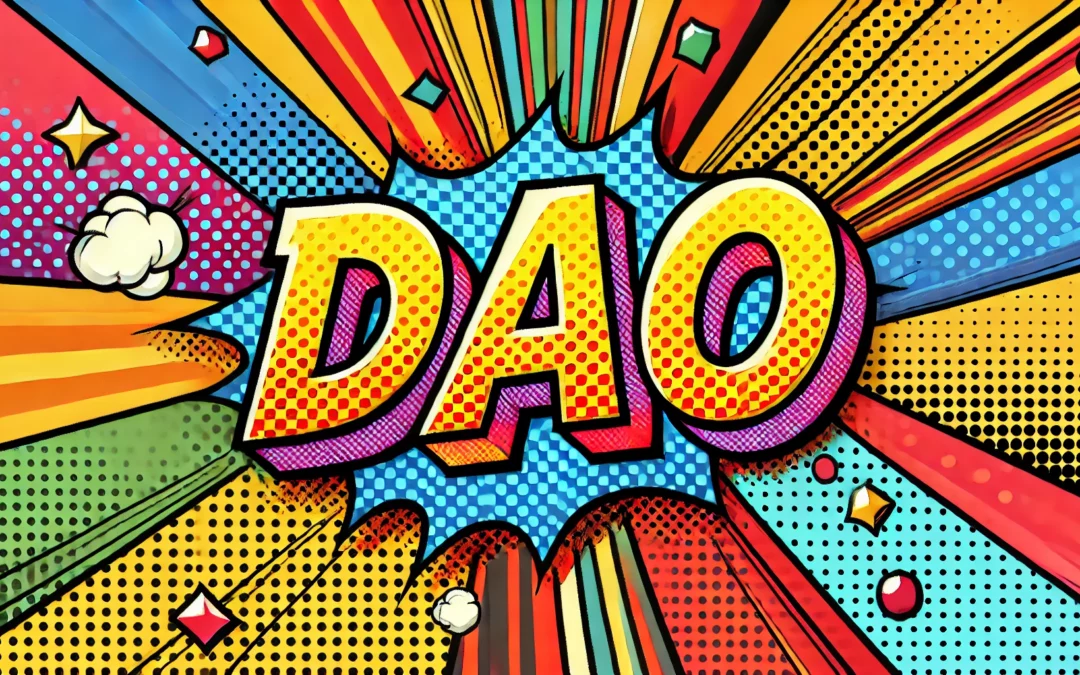The internet evolved from web1.0 into web3.0. It has succeeded in what previous generations failed to do by adopting protocols that are decentralized over centralized applications controlled and managed by technology giants. Web3 provides the foundations of trusted peer-to peer communication. Web3 is a democratic, decentralized internet that’s owned by the users. All blockchain products, projects and protocols adhere to the principle of decentralization. Decentralization is essential to the creation of a decentralized system, including tokenized assets like NFTs or blockchains. DAOs are the main way to achieve decentralization for Web3 projects and protocols. Decentralized Autonomous Organizations are a concept that simplifies business processes and functions by utilizing smart contracts with transparent, defined rules. These organizations give you a platform to decentralize ownership, and they also allow you to participate in voting and decision-making.
What is a DAO?
DAOs, or blockchain-based internet-native organizations, are a way for businesses, communities and projects to be managed in a more democratic manner. Each member has the right to vote.
Decentralized autonomous organizations (DAOs) are controlled and owned by the community. There is no central authority. Smart contracts are used on the blockchain. The smart contracts are the ones that contain the rules of the DOA. This means the voting, proposals and decisions can be accessed by the public. Each member has voting rights.
DOA’s main goal was to simplify complex business processes and move the support in the direction of digital interactions without third-parties and to encourage faster and transparent processing. DAOs emerged as digital intermediaries that provide transparency and status to an organization without traditional organizational methods such as management, groups and other entities.
What is DAO Work?
A core team of members from the community establishes DAO rules through smart contracts. These smart contracts govern the DAO. Each step of the protocol can be verified, publicly audited, and is completely transparent.
The DAO founders create a coin, which is commonly known as a “governance token” within a DAO. The tokens are distributed to users and stakeholders. Each token has a certain voting power within an organization. The secondary market determines the price of tokens, which are available to buy and sell as required.
Despite DAOs’ being described as “decentralized”, data from the governance tokens indicates that DAO ownership has a high concentration.
The role of DAOs within the Web3 Economy
Decentralized autonomous organizations (DAOs) are an essential part of Web3. Web3 has created entirely new economic organizations – DAOs. These decentralized autonomous organizations facilitate the interaction across Web3.
Digital natives can participate and collaborate on crypto projects online with DAOs. It can be used by traditional organizations with principles, but it also raises issues of regulatory clarity and investor protection. Government measures were insufficient, but trials for innovation and changes were being conducted to allow the community’s participation.
Summing-up
Web3 is not yet mature, and nobody knows what its exact structure will look like in the near future. Web3’s decentralized infrastructure and peer-to peer networks will allow people to be responsible for their own personal data and crypto-activities.
Even though DAOs and blockchain networks are decentralized, many Web3 services are controlled by a few private companies. DAOs are in the early stages and have a long road ahead.

